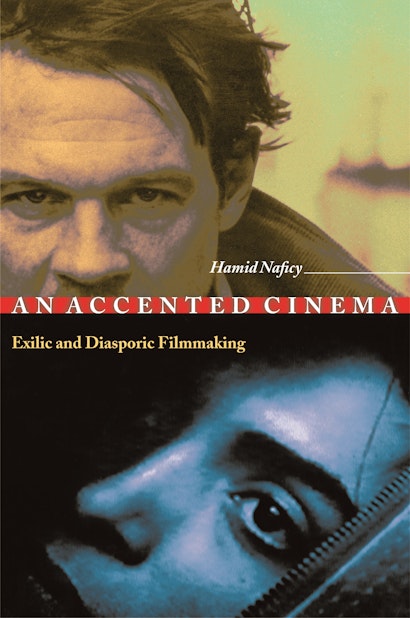In An Accented Cinema, Hamid Naficy offers an engaging overview of an important trend—the filmmaking of postcolonial, Third World, and other displaced individuals living in the West. How their personal experiences of exile or diaspora translate into cinema is a key focus of Naficy’s work. Although the experience of expatriation varies greatly from one person to the next, the films themselves exhibit stylistic similarities, from their open- and closed-form aesthetics to their nostalgic and memory-driven multilingual narratives, and from their emphasis on political agency to their concern with identity and transgression of identity. The author explores such features while considering the specific histories of individuals and groups that engender divergent experiences, institutions, and modes of cultural production and consumption. Treating creativity as a social practice, he demonstrates that the films are in dialogue not only with the home and host societies but also with audiences, many of whom are also situated astride cultures and whose desires and fears the filmmakers wish to express.
Comparing these films to Hollywood films, Naficy calls them “accented.” Their accent results from the displacement of the filmmakers, their alternative production modes, and their style. Accented cinema is an emerging genre, one that requires new sets of viewing skills on the part of audiences. Its significance continues to grow in terms of output, stylistic variety, cultural diversity, and social impact. This book offers the first comprehensive and global coverage of this genre while presenting a framework in which to understand its intricacies.
Born in Iran, Hamid Naficy came to the United States in 1964 and is Professor of Film and Media Studies at Rice University. He has published extensively on exile and diaspora theory, culture, television, and cinema as well as on Third World and documentary cinema. Naficy is currently completing his long-awaited book on the Iranian cinema.
"[Naficy] does a wonderful job of describing and bringing to life works as yet unseen and, equally admirable, prompts a desire to return to more familiar cinematic texts. [His] prose is engaging, and often eloquent."—Joel Gordon, Arab Studies Journal
"An Accented Cinema is in numerous respects a monumental work. It is an attempt to rewrite the history of contemporary cinema by reinventing the categories we use to think about production, consumption, and spectatorship. The energy behind this effort and the continual use of excellent examples to back up the argument make the book a unique and original work of scholarship. It is likely to produce a great deal of debate and interest among film scholars and cultural analysts."—Ron Burnett, President and Professor, Emily Carr Institute of Art and Design
"Hamid Naficy's Accented Cinema offers a groundbreaking overview of theoretical and aesthetic debates concerning postcolonial, exilic, and diasporic forms of cinema. His analysis moves elegantly between high theory and sensitive 'close-up' readings of emblematic tropes in the work of key filmmakers in this field such as Kusturica, Guney, and Egoyan. The book is a major contribution to the study of transnational cultures and the cinematic production of cultural identities."—David Morley, Goldsmiths College, University of London
"Hamid Naficy's magisterial account of an accented cinema proposes a timely reassessment of the ethics and aesthetics of the occidental center. In the details of language, perspective, and technique, the many significant films considered by Naficy invite us to a re-vision of our very understanding of cinema in the modern world."—Iain Chambers, Istituto Universitario Orientale
"Drawing on highly literary and media theory, Naficy places accented films in an evolving, multilayered dialogue with home and host countries."—Robert Avila, San Francisco

